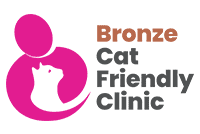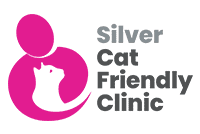Physical examination
This should be something to get your puppy used to from a young age. I will demonstrate how to do this with your puppy, being able to examine your puppy means that when they have to come to see us at Shires Vets in Staffordshire,it will be a much easier and calmer experience.
You should check:
- Eyes/ears
- Mouth
- Paws, nails and legs
- Neck/back
- Tail
- Tummy
General Health
- Eyes/ears – should be clear and free from discharge
- Skin/coat – the skin shouldn’t be flaky or greasy and the fur should be free of mats. Grooming is the best way to check the coat and can be a good bonding exercise for you and your puppy.
- Teeth – check for any inflammation (red) of the gums, bad breath, plaque or damaged teeth
- Exercise – monitor any decrease or reluctance to exercise
- Appetite and thirst – any quick changes in eating or drinking If you have any concerns please contact the surgery at Shires Vets.
Neutering
Females
- Usually, their first season is between 6-9 months depending on the breed.
- We can spay from six months of age and either preseason (before the first season) or post-season (neutering 3 months after a season)
- We have 2 approaches:
- Routine ovariohysterectomy, this is where we make an incision into your pet's midline and remove the ovaries and the uterus. Recovery normally takes 5-10 days.
- Laparoscopic (keyhole) – we make 2 small incisions into your pet's midline and remove the ovaries only. They are normally back to their old selves the day after surgery.
Males
- At Shires Vets we can castrate them from 6 months of age. The behavioural impact of castrating male dogs is important and can be discussed on an individual basis.
- We run adolescent clinics at the practice for 5-6 months of age, these clinics provide help and advice on neutering and the health and well-being of your puppy.
Nutrition
All puppies should be fed good quality puppy food ideally until they are 12 months.
Puppies have small stomachs so should be fed little and often. It is best to have a set meal time.
How often to feed your puppy:
- 8-12 weeks = 4 meals a day
- 12-16 weeks = 3 meals a day
- 16- 24 weeks = 2-3 meals a day
Socialisation
The critical time for socialising a puppy is 4-16 weeks. It is to the puppy’s advantage to be exposed to as many people and animals as possible. As owners we have a responsibility to protect them from bad experiences at this time the puppy must be exposed in a controlled way. A chart is included in this pack that you can use to ensure as much socialising is done. All training and socialisation should continue right into adulthood, a dog’s character tends to be set at 18 months of age. Anything done after this age will take longer with a reduced lasting effect.
Exploring
Exploratory behaviour is part of growing up for a puppy; it is how they learn about the environment around them, smelling, licking and chewing. Playing and teething, however, can sometimes result in mouthing/chewing behaviour and it may be an object or human-orientated. The puppy should be encouraged to chew a variety of safe toys by substitution. Sometimes aversive therapy is needed such as bitter apple spray or Tabasco sauce on chair legs. Bones are best avoided since they are too hard and can also be the cause of gastric upsets, aggression and sibling rivalry.
Play and exercise
Play fighting with other dogs is healthy and normal and should be encouraged. Wrestling with human owners should be discouraged since it teaches dogs the kinds of lessons they should be learning with and about other dogs. Play with owners should involve throwing and fetching not tugging games, toys are more enjoyable for a puppy if they are not left lying around but are brought by the
owner when it's playtime. Healthy dogs should exercise well and rest well. Restlessness, pacing, attention-seeking behaviour and other behaviour problems may arise from under-stimulation and under-exercise.
Mounting
This is normal behaviour for puppies from 12 weeks and does not need to be discouraged or punished. It is not an indication that a given male will need to be castrated.
General training
This should start as soon as the puppy has settled in. Learning is rapid between 8-12 weeks of age. At this early stage, it is easier to wait for behaviours to be performed spontaneously than to reward and attach a command. This way the puppy cannot fail and learns quickly the associations between command, action and reward. Rewards need not and should not always be food. Puppies should learn and want to perform behaviours to please their owners, not because there is something in it for them.
Grooming
You should groom a dog with equipment that mimics a massaging action and removes dead hairs and debris. Start as soon as possible.
Control
Owners are required by law to fit their dogs with a means of identification whilst in a public place. Dogs should be trained to accept a collar and lead whilst puppies and to walk without pulling. Choke chains are not acceptable; they cause neck damage and pain.
From 2016 it is the law to have every dog microchipped.
Problem behaviours
Jumping up
This is a common problem. It is normal behaviour for a puppy but undesirable for us. The puppy wants to get to our mouths as it would have done to its mother when it was younger.
Training for this problem should begin straight away. First, the puppy should be taught to sit on command and then asked to sit before it gets anything it wants or needs. The puppy should never get attention for jumping up. Petting, light scolding or pushing the puppy away will reinforce this behaviour. How far you need to go in your ignoring response will be related to the severity of the jumping up. You should keep your arms folded and turn away from the puppy until they learn to calm down and sit.
Play biting
Play-biting is also a natural behaviour that is undesirable and dangerous if not corrected from a young age. Family members should not engage in rough play, wear gloves to permit hard bites or encourage the puppy to attack and bite hands or feet. Harsh or physical corrections should be avoided. No striking, thumping on the nose or a fist in the mouth
The puppy should never receive any kind of attention for biting. All attention is withdrawn, especially the arms and even to turn and walk away if the puppy’s excitement continues.
Puppies should receive frequent opportunities for exercise and play. Puppies that receive a good amount of exercise and stimulation have less energy to play and attack people.
Toilet training
Newspapers should only be used to mop up mistakes. The puppy should be taken outside to the appropriate area frequently. You should encourage the puppy to play, which then encourages elimination. When the puppy squats to urinate/defecate give a command e.g. “be quick” or “wee wee” and when they have finished the elimination you should immediately reward them with food, play or effusive praise.
In this way, the puppy learns to toilet on command, which means they are less likely to toilet away from the approved areas or without a command. Mistakes such be rewarded as such and not punished in any way. Punishment is often misunderstood or teaches them to toilet cryptically.
Interpreting body signals
We can never hope to understand every bit of body language that goes on between dogs but a few pointers will often help you to read the situation and how to react.
How dogs interact with other dogs is very different to how dogs interact with other humans. The more a puppy has been socialised with other dogs the more chance it has of reading a situation when meeting other dogs.
The best way for a dog-to-dog greeting is off the lead, as this allows them to display normal greeting behaviour and space to get away if needed. The less you try to interact with your dog at this point the better, interfering means interrupting this greeting. This means that your dog will never get to interact properly and in turn can lead to them and others becoming frustrated or confused.
Interactions with humans are mainly down to how a puppy has been trained and socialised. Barking, overexcitement and fear can all be related to how a puppy has been raised. If a puppy has been exposed to as many different types of people as possible they learn to cope with most situations.
Generally barking is seen by some people to be a fearful response. Fear would be hiding behind something, standing there and barking is like shouting, a bold gesture which normally is reinforced by whatever they are barking at going away, e.g. the postman.
What is normal?
No two puppies are the same every puppy has its personality.
Training Classes
These are a great place for puppies to socialise and learn. It is recommended that you go along to the class without your puppy to see what the class is like and how they like to run the class. Find a class that suits you and your puppy.
Punishment
This should be consistent, clear and well-timed. It should NOT consist of physical punishment, tapping on the nose or threatening with a rolled-up newspaper. Puppies should learn that human hands are for positive experiences or else they become confused about signals and may react defensively to similar gestures.
Punishment should be noise (rattle can), withdrawal of affection/attention, water pistols or any tactic that causes the puppy to blame itself for its punishment.










